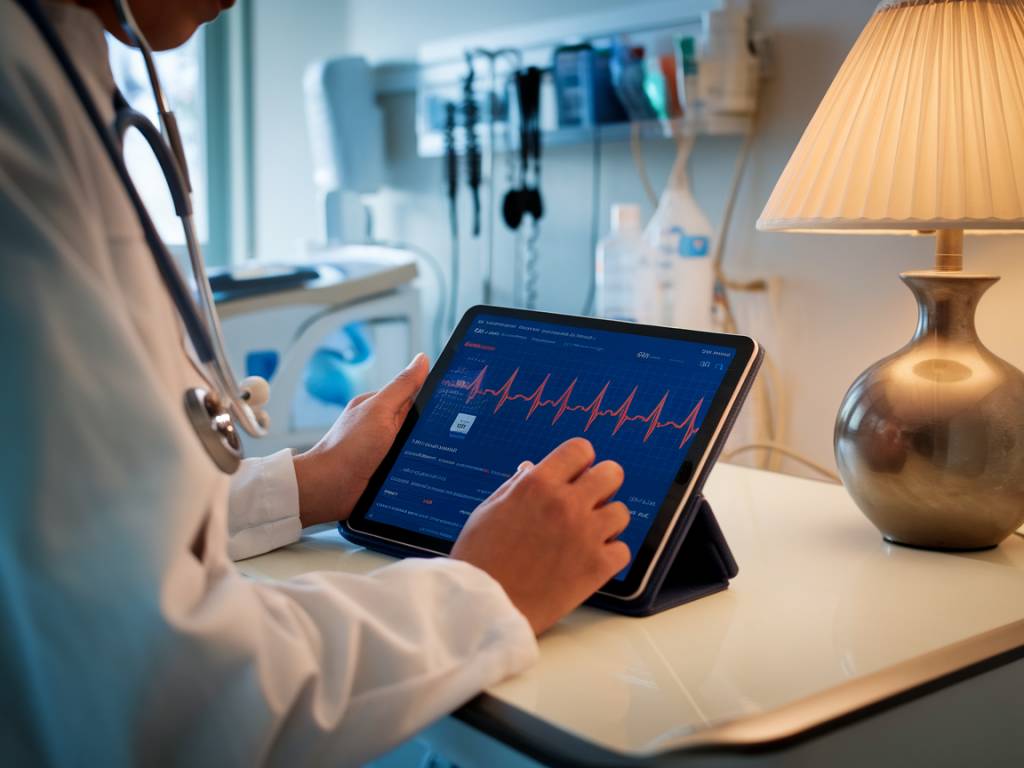The world of healthcare is witnessing a seismic shift, one that promises to redefine the way we perceive and engage with our health. Digital health, a burgeoning field at the intersection of technology and healthcare, is rapidly gaining momentum. Have you ever wondered how the smartphone in your pocket or the watch on your wrist could revolutionize your healthcare experience? Let’s delve into this brave new world, exploring how technology is transforming our approach to health and well-being.
The Dawn of a New Era in Healthcare
In recent years, we’ve seen an extraordinary surge in the adoption of digital health technologies. From apps that monitor our sleep patterns to sophisticated AI-driven platforms that predict potential health issues, the landscape is rich with innovation. But what exactly sparked this digital health revolution?
In part, it’s the result of our ever-increasing reliance on technology for daily activities. The convenience of having health data at our fingertips is a powerful motivator. Imagine waking up in the morning and instantly checking your heart rate variability or evaluating your daily step count. It’s no longer a distant future; it’s here, and it’s transforming the way we manage our health.
Empowering Individuals Through Digital Health
Digital health tools empower individuals by providing them with unprecedented insight into their personal well-being. A friend of mine, Emma, recently started using a digital platform that provides comprehensive health analytics. Within weeks, she noticed patterns in her lifestyle that she could easily modify for better health outcomes. This empowerment is not just about knowing your steps or calorie intake; it’s about understanding your overall health profile and making informed decisions.
Additionally, these technologies facilitate more personalized healthcare experiences. With wearables and health apps, individuals can tailor their health plans to suit their unique needs. This personalization is a significant leap forward, enabling us to break away from the “one-size-fits-all” approach traditionally seen in healthcare.
Revolutionizing Patient-Doctor Relationships
While the benefits for individuals are significant, digital health is also reshaping the traditional patient-doctor relationship. Doctors now have access to a wealth of real-time data that can influence treatment plans and outcomes. Remember the days when you had to jot down your symptoms on a piece of paper before visiting the doctor? Those relics are fading fast, making room for digital solutions that provide more accurate and comprehensive health histories.
Furthermore, telemedicine has been a game-changer, especially during the global pandemic. Patients can now consult with healthcare providers from the comfort of their homes, reducing the need for in-person visits and increasing accessibility for those living in remote areas. It’s a win-win for both patients and healthcare providers, streamlining care and optimizing efficiency.
The Role of Artificial Intelligence and Big Data
Let’s not forget about the role of artificial intelligence (AI) and big data analytics in this digital health evolution. These technologies are helping to uncover trends that were previously invisible, offering insights that can lead to early diagnosis and preventive care. Consider AI-driven platforms that predict outbreaks or provide risk assessments for chronic diseases. With such tools, healthcare providers can stay one step ahead, potentially averting health crises before they arise.
This integration of AI and big data is also improving the accuracy of diagnostics. Algorithms can sift through mountains of data to identify anomalies that might escape even the most trained human eye. It’s a fascinating blend of human intelligence and machine learning, working together to advance healthcare as we know it.
Navigating Challenges and Ethical Considerations
While digital health offers a tantalizing array of benefits, it also presents challenges and ethical dilemmas that require careful consideration. Privacy is a significant concern. With vast amounts of personal health data being collected and stored, ensuring that this data remains secure is critical. After all, who wants their health data falling into the wrong hands?
Moreover, the digital divide remains a barrier. Not everyone has access to the latest technology, which could exacerbate existing health disparities. As we move forward, it’s essential to create inclusive healthcare solutions that bridge these gaps, ensuring everyone can benefit from digital health advancements.
Looking to the Future
The rise of digital health is not just a fleeting trend; it’s a long-term transformation that promises to enhance our quality of life. As technology continues to evolve, so too will the possibilities for healthcare innovation. Will we see smart clothing that monitors our vitals? Or perhaps drones delivering medicine to remote locations?
The journey is just beginning, and the potential for digital health to revolutionize healthcare is limitless. By embracing these changes and addressing the challenges they bring, we can look forward to a future where health and well-being are more accessible, personalized, and informed than ever before.
So, as you go about your day, consider how these technologies might further integrate into your life. How can they help you become an active participant in your health journey? Perhaps the next time you’re scrolling through apps on your phone, you’ll find yourself reflecting on the tiny medical marvels silently working to keep you well.

